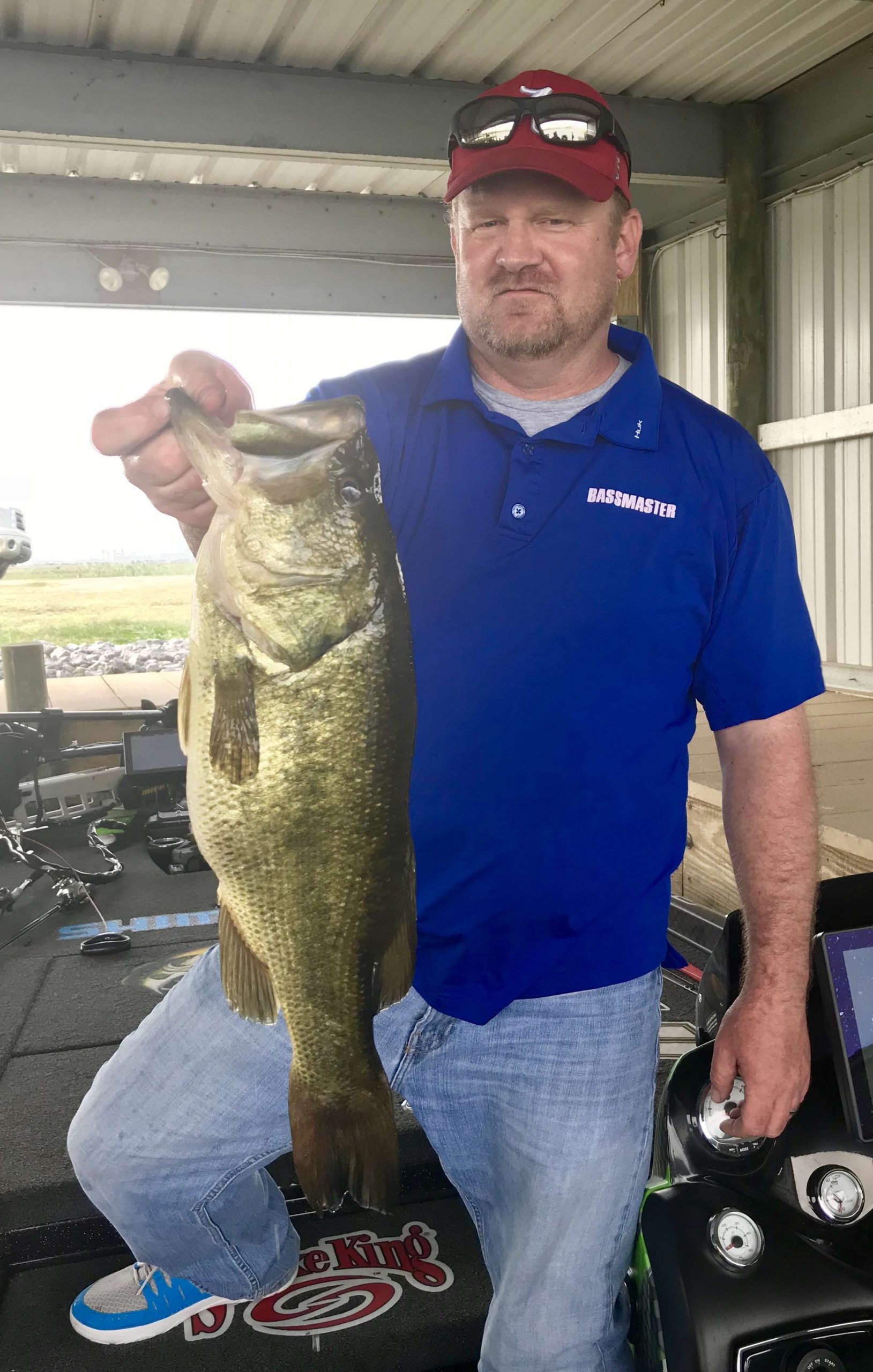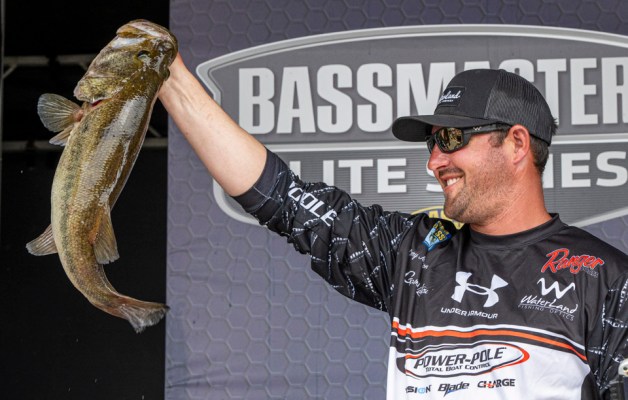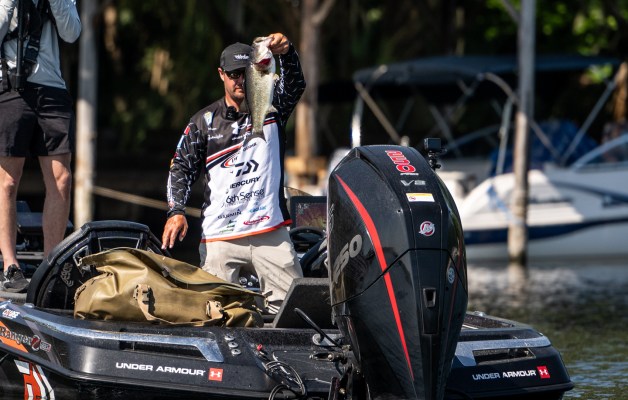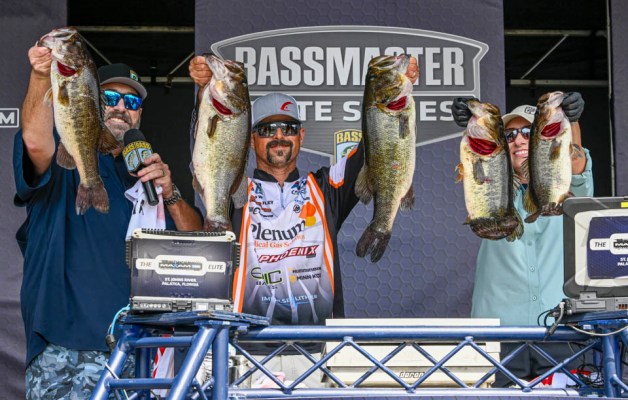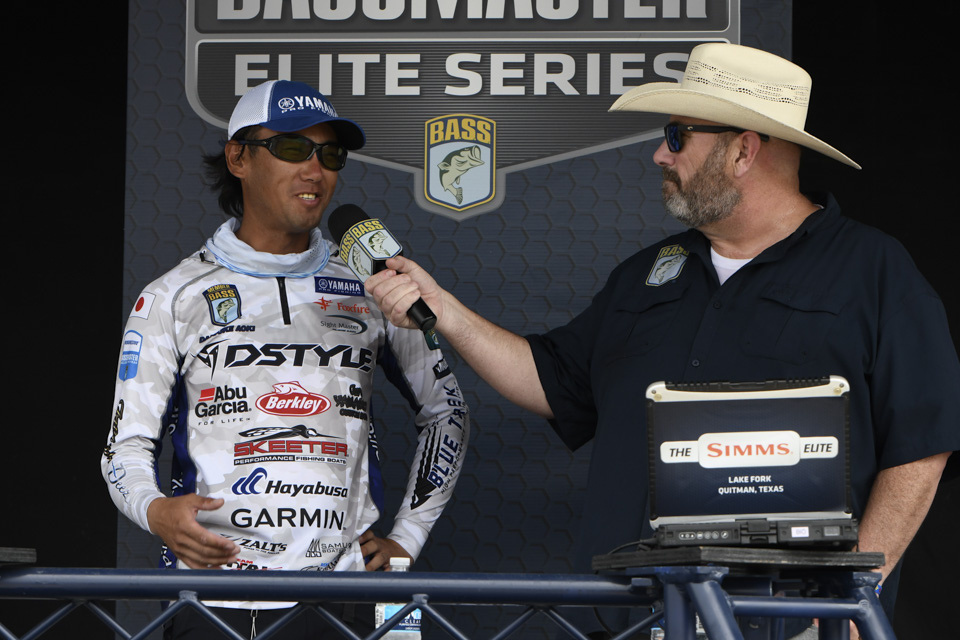
I’ve covered a lot of major sporting events through the years, from the World Series to college football national championship games.
So, it says a lot that I consider Bassmaster Senior Writer Steve Wright one of the most gifted pure interviewers I’ve ever stood next to.
That last sentence also gives some perspective on just how lost Wright and I were as we tried to interview Japanese pro Daisuke Aoki during the recent Elite Series event at Chickamauga Lake.
Aoki had just weighed in 23 pounds, 12 ounces on Day 1, good for second place. When he exited the stage into the interview area, Wright launched into one of his classically well-worded questions — and with every word, it became more obvious that Aoki had no clue what he was saying.
And why would he?
Aoki grew up more than 6,000 miles from where Wright did in Arkansas. They speak two different languages from two cultures that couldn’t possibly be more different.
But speaking to Japanese pros is something we in the pro fishing media are going to have to get used to. There’s a Japanese resurgence going on right now like nothing we’ve seen since the 1990s, and it shows no sign of slowing down.
Aoki is one of four Japanese pros on the 94-angler roster for the Bassmaster Elite Series, along with Kenta Kimura, Masayuki Matsushita and Taku Ito.
Each have had gigantic moments recently, from Aoki’s sixth-place finish at Chickamauga and Kimura’s victory in the St. Croix Bassmaster Northern Open presented by Mossy Oak Fishing on the James River a week later, to Matsushita’s 2020 Opens victory on Sam Rayburn that earned him a berth in the Bassmaster Classic and Ito’s Elite Series victory at the St. Lawrence River in 2021.
What they’ve accomplished on the water would be impressive no matter their origins. But their success at such a high level with the gap in communication they deal with every day is purely amazing.
I’ve been in that situation only a few times in my life, usually as I’m passing through customs in Mexico on my way to a fishing trip at world-famous Lake El Salto. There’s no way to accurately describe just how much you feel like a fish out of water — and for me, that was just for a few minutes at a time.
If I suddenly had to trade places with Aoki or Ito — if I was forced to find my way around Japan as an English-speaking Southerner — I’d end up sitting terrified in a corner somewhere waiting for Bassmaster photographer Seigo Saito to hop a flight and come and get me.
Saito, a Japanese native, is where we ultimately turned to get usable interviews from Aoki since Wright’s method of speaking clearly and my method of speaking loudly didn’t work.
I was amazed again by the beauty of that language and the obvious relief in Aoki’s voice over the rare chance to converse with someone in his native tongue.
I’d like to learn some conversational Japanese myself because I know that won’t be the last time I’m tasked with interviewing an angler from that country.
Tackle companies have been bringing Japanese culture to the United States for years with the introduction of products like the Gamakatsu Gika rig and the VMC Tokyo rig — both Japanese creations that have recently gained popularity in the States as American anglers have realized their effectiveness.
Two Japanese companies also recently teamed up to give us the Daiwa Yamamoto Neko Fat Worm, and lures from Evergreen International have been staples in American tackleboxes for years.
Ito has struggled so much at times to name his lures after Elite Series events that he’s begun carrying a notepad in his boat and just writing them down for any reporter who asks.
Aoki, to his credit, is also being patient with those of us who haven’t learned to communicate with him.
Seigo interpreted for us again on Days 2 and 3 at Chickamauga — and when I asked, through Seigo, if Aoki planned to swing for the fences on the final day, he didn’t wait for Seigo to translate.
He just answered “Yeah” — and when I told him that was the only thing he’d said all week I’d understood, he laughed so hard it turned heads in the weigh-in line.
I guess it’s true, laughter is universal.

